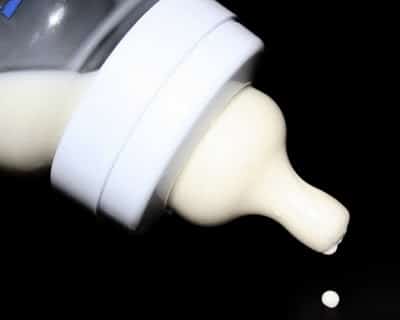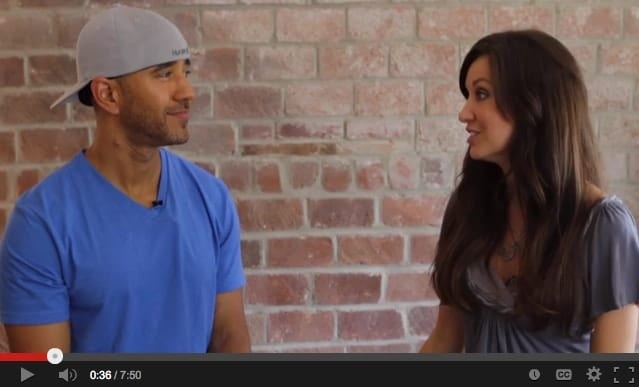Stress… it’s become synonymous with pain, struggle, overload, and even death. But is stress really that bad? And if it is, what do we do about it? Gather round as I take you through The Good, The Bad, And The Ugly faces of stress.
The Good
Stress is actually one of the healthiest things for us. Wait, what? That’s right, stress is so good for us it’s impossible to be human without it.
We require stress to develop adaptive responses from things like being able to breathe oxygen once we leave our mother’s womb, to developing and growing our brain tissue, to triggering our body to lay down new muscle. WIthout resistance, we don’t grow stronger. And that’s just the way it is.
The term hormesis refers to beneficial biological adaptions from exposure to low doses of toxins or other stressors. Hormedic stressors like resistance training temporarily hyper-stress several functions in our body. If you were to see the lab work of a really fit individual who just finished lifting weights, you would actually think they were incredibly unhealthy.
Inflammatory markers would be up, stress hormones would be elevated, there would be extensive micro-trauma to muscle cells, and various other evidence that they are not as healthy as you might expect.
Now, assuming that the individual rests and recovers properly, that resistance training stress will result in them becoming stronger, faster, and more “fit” than before. The micro-traumas are healed, healthy hormone levels are higher, and resistance to inflammation is even better. But how did this happen?
Very simply, your body changes every organ and every cell possible to act as a buffer to the pain you were just exposed to. Your body comes back stronger and better equipped to deal with the stress so that it won’t feel that it is incapable anymore. Our bodies are truly a miracle of engineering. And it’s time that we start to see them as such.
The hormedic stress response goes for anything from mental stress, to emotional stress, to adaptions to the foods we eat. Our brains and bodies literally rewire and develop based on the stresses we’re exposed to.
To take this even further, substantial research has proven that it’s our perception of stress that actually hurts us far more than the stress itself. In this wonderful TED Talk, Health Psychologist Kelly McGonigal shows us that people who believe that stress is bad for them do emphatically die faster. While those that think stress makes them stronger live longer than anyone else.
So whether you feel stressed or not, it’s important to pay attention to how you perceive the stress in your life. Stress can make you better, faster, stronger, and smarter, but you still have to know when enough is enough.
The Bad
Your sympathetic nervous system (also known as your “fight or flight” system) is designed as an evolutionary impulse to help you save yourself from a wild animal attack or fend off a rival tribesmen. Important? Yes. Are there any saber-toothed tigers chasing us around today? No.
The reality is your body doesn’t care if it’s a big stress or a little stress. Your fight or flight system is binary, which means it’s either on or it’s off (just like a light switch).
Most people in our high-stress world today are perpetually living with the lights on and never allowing their body and mind to get out of that stressed state. Unpaid bills, looming exams or projects, etc all trigger the same stress response in your body as if you were in danger. According to the HeartMath Institute, “A typical stress reaction, which most of us experience dozens of times each day, begins a cascade of 1,400 biochemical events in our body. If these reactions are left unchecked we age prematurely, our cognitive function is impaired, our energy is drained, and we are robbed of our effectiveness and clarity.”
Does this sound familiar?
Bottom line, too much stress of any type can shoot your health and productivity straight down the toilet if you’re not taking action to unplug and de-stress. Whether or not you believe stress is harmful or helpful, you need to take time to recover. HeartMath experts say don’t wait until the weekend to get balanced out. If you’re stressed, take action to do something about it now or it’s your own health that suffers. I’ll share with you 3 quick tips to de-stress at the end of this article, so sit tight.
The Ugly
In the 1900’s the vast majority of physician visits were for acute infection, influenza, trauma or child-birth. Today, upwards of 90 percent of doctor visits are for stress related illnesses. That, my friend, is insane.
The American Medical Association has noted that stress is the basic underlying cause of more than 60% of all human illness and disease. So not only is stress a component and instigator of disease, it literally makes diseases fresh out of the oven for you like grandma’s chocolate chip cookies.
Even though it’s not life or death most of the time, the same psychological worries we carry around constantly bathe our cells in stress hormones that:
- Raise our blood pressure
- Increase blood sugar and decrease insulin sensitivity
- Restrict our breathing
- Depress our digestion
- Tighten and constrict our muscles (including the important one in your chest)
- Elevate stress hormones to unhealthy levels
- Inhibit our immune function
The last one is especially important, because the real ugliness starts when we become susceptible to chronic disease.
Researchers at Wake Forest Baptist Medical Center discovered that stress actually accelerates the development of cancer. And as with other major illnesses, stress has been found to be a trigger for cancer by activating specific genes that compromise the immune system.
To make matters even uglier (U. G. L. Y. You ain’t got no alibi) chronic stress has been found to literally make you age faster. This is not, “oh, I’m getting some wrinkles”, this is at a DNA level which is depicted wonderfully by the folks at ASAP Science in this video:
When it’s all said and done, stress can do some good things, some bad things, and some downright ugly things, and it really boils down to how you handle it. Here are 3 quick tips to help you de-stress.
1) Drink a glass of water. Yes, it’s as simple as that. Chronic dehydration is a huge physical stressor, and being present while drinking that water can give you a few seconds to switch off your fight or flight system and feel a bit better. Find out what water you need to be drinking right here (it’s important) – ReWild Yourself With Daniel Vitalis
2) Get busy. You can take that in any way that you want. Getting up and being active for even just five minutes can help you de-stress. Play a game, do some yoga, call a friend to talk, there are so many ways to get off your butt and stop feeling overwhelmed and caught-up in your stress. Getting busy on an intimate level is great too. You’ll release powerful anti-stress chemicals like oxytocin, prolactin, and endorphins if you do it right. 😉
3) Just breathe. Your breathing is heavily connected to your thoughts. Learning to control your breathing can be amazing for de-stressing and easing your mind. We tend to breathe very shallow when we’re over-stressed, so breathing deeply is a good place to start. Try this simple breathing exercise by breathing in for 5 seconds, hold it in for 5 seconds, breathe out for 5 seconds, then hold it out for 5 seconds. Repeat 4 more times and you’ll be golden. Guaranteed to be feeling less stressed!
So, what do you do to de-stress? I’d love to hear what’s been helpful for you and what might be helpful for other people, so please leave it in the comments section below.








I have read the book The Wim Hof Method. Once I started reading it, I couldn’t put it down. It will give you everything you need to de stress. It might be the best book I ever read!
Awesome article about stress, what it does to us, and how to handle it. When I’m stressed, which seems to be all the time, I usually listen to Miles Davis (my kinda blue) cd or watch a good comedy. When I’m at work and can’t do those things, I go for a great speed walk around the building.
My method of de-stressing definitely does not apply to all, but I find it to be priceless. In all honesty, my form of de-stressing consists of recognizing my inability to handle certain situations due to my “finiteness,” and surrendering the situation over to the Lord and asking Him to take care of it. This is truly something one must discipline him/herself to do because it does not come naturally. I admit I have my stress relapses, but I have learned that the more I stress about something the more I always find that the end-result was not worth stressing over and if I would have trusted the Lord in the first place to take care of it, the whole stress episode could have been avoided.
By the way, I absolutely enjoy your show Mr. Stevenson! You and Ms. Jade crack me up!
I have implemented all of those strategies depending on what I am stressing about and the situation I am in.
For me, taking a few moments to stretch and breath can make a big difference.
Or visualizing how I want to react to the situation, taking a moment to take a step back and recognize that from every situation I have learned something or become better. Visualize yourself becoming better and stronger through the stress.
I have also been known to belt song lyrics at the top of my lungs when stressed out :o)
I love all of that! Especially the singing 🙂
Powerful. I create gratitude every day by a fast workout walk with my dog in the woods. We fetch and call in the Ravens it’s a sacred 1 hr+. then I meditate. Next do a 5 min. energy workout w/ Donna Eden online! I Do my tony horton workout with other side exercises. I love my job self-employed as an artist for 26 years. I visualize/manifest. A great customer/nutritionist let me pick her brain for over an hour!!! I lost 50 lbs last year. I’ve been reading and doing lots of webinars on nutrition. Been juicing for a year and bought a Vitamix. Others around me are inspired. You are a favorite too. blessings!. P 50 more lbs to go oh la la!
Pea,
So happy for you, and inspired by your morning ritual!
Honored to be one of your favorites too 😉